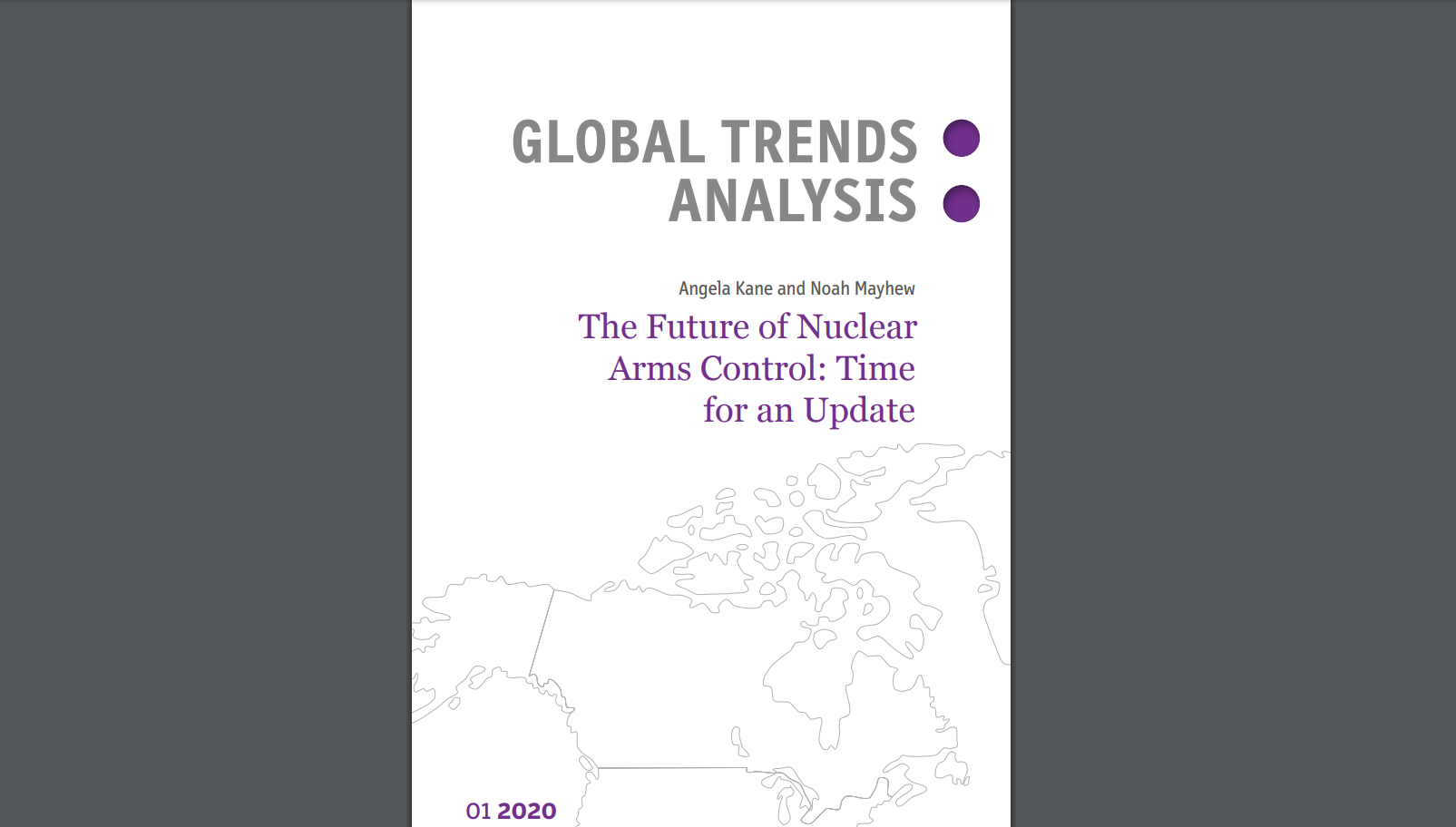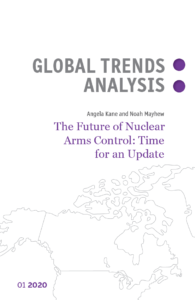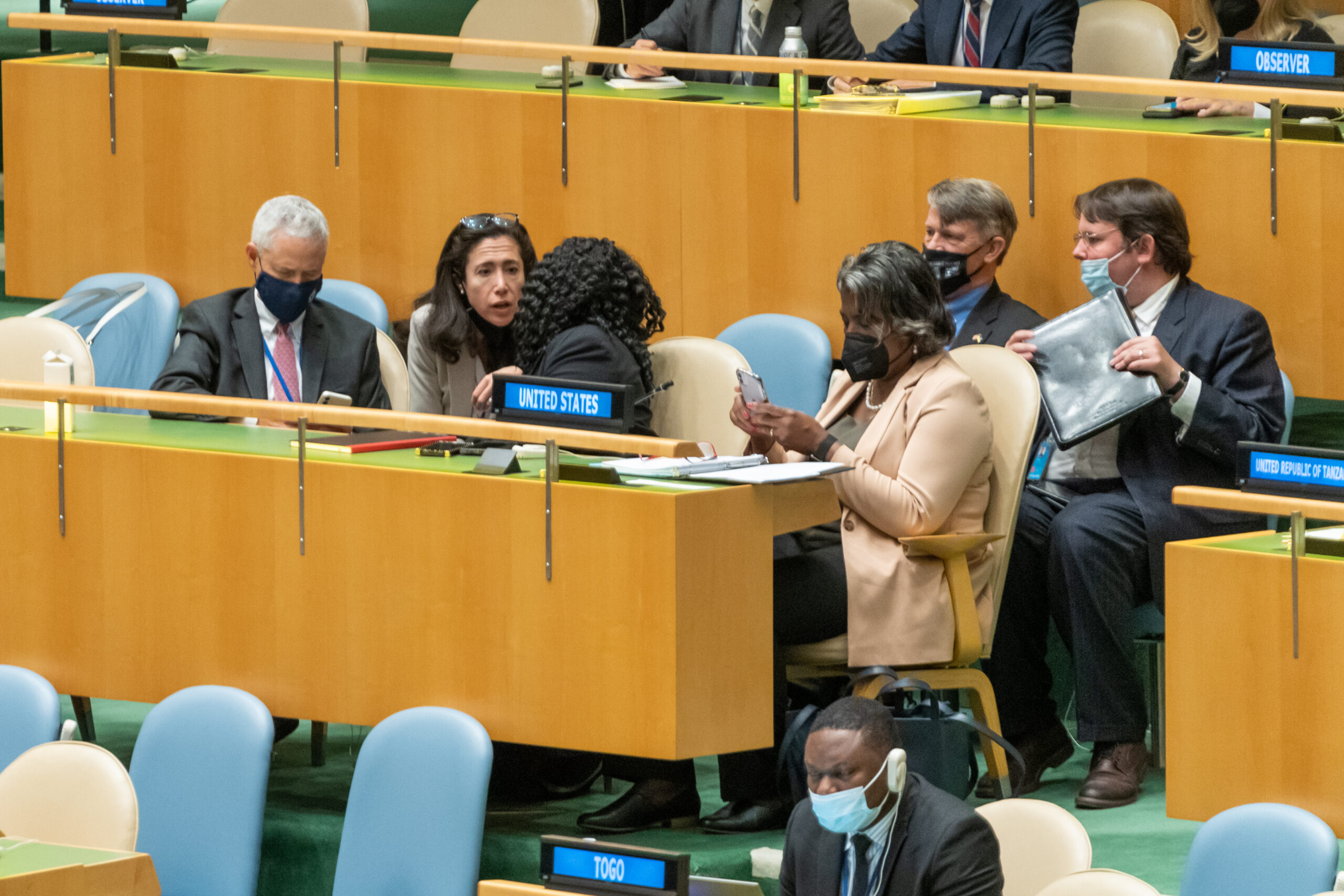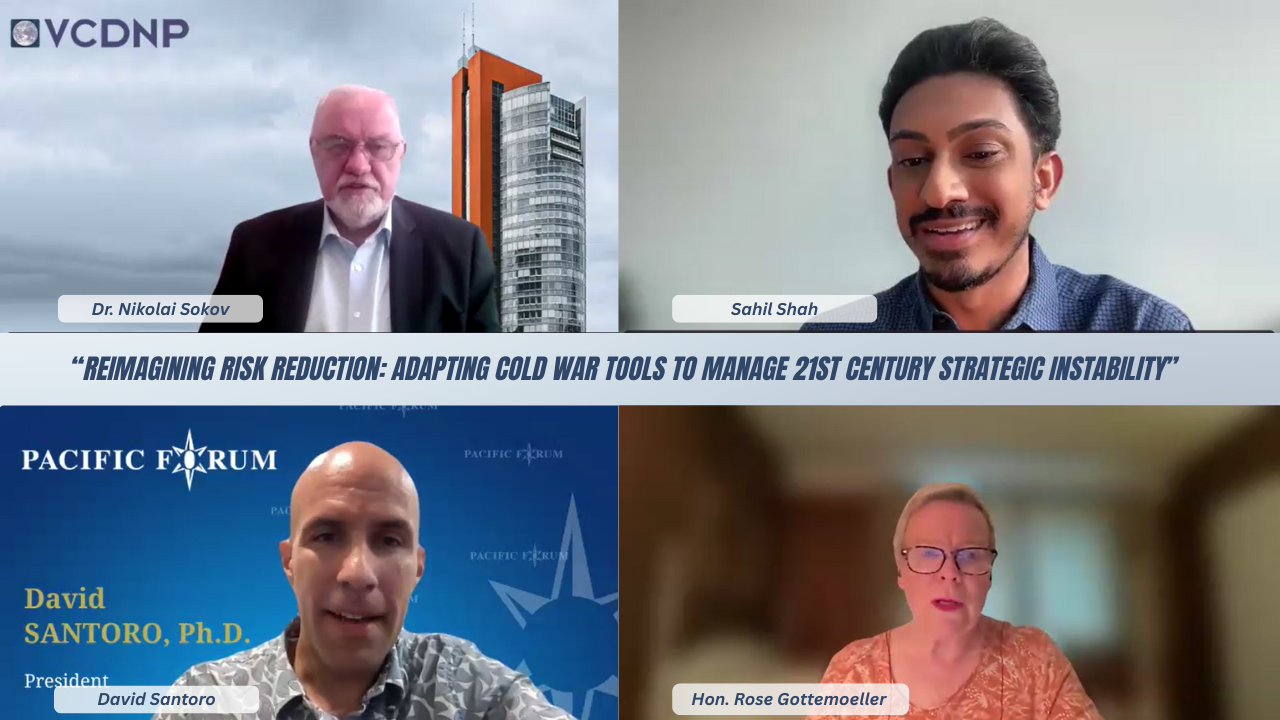
 There are many that say that nuclear arms control as the world knows it is outdated. As arms control agreements between the United States and the Russian Federation continue to fall by the wayside, this concern is becoming more pronounced. In a new analysis piece published by Stiftung Entwicklung und Frieden (Development and Peace Foundation), VCDNP Senior Fellow Angela Kane and Research Associate Noah Mayhew take stock of nuclear arms control, including its history in the 20th Century and new challenges in the 21st Century.
There are many that say that nuclear arms control as the world knows it is outdated. As arms control agreements between the United States and the Russian Federation continue to fall by the wayside, this concern is becoming more pronounced. In a new analysis piece published by Stiftung Entwicklung und Frieden (Development and Peace Foundation), VCDNP Senior Fellow Angela Kane and Research Associate Noah Mayhew take stock of nuclear arms control, including its history in the 20th Century and new challenges in the 21st Century.
In their analysis, Ms. Kane and Mr. Mayhew surmise that arms control is not obsolete, but is due for an update to take into account the evolving geopolitical environment and emerging technologies. In particular, the authors address the factors of a resurgent Russia and the rise of China in the geopolitical sphere, as well as the risks that cyber warfare, lethal autonomous weapons systems and artificial intelligence might pose in the technical sphere. The authors offer their perspectives on how countries can work within new geopolitical realities and adapt new technologies to arms control in the 21st Century. They also address how progress might be made in risk reduction in the absence of the political will to conclude new arms control treaties.
Finally, zooming out, Ms. Kane and Mr. Mayhew observe that the priority that nuclear-armed countries place on nuclear weapons may not be commensurate with the wishes of those countries' populations. Rather than invest large sums of public money into nuclear weapons programs, the authors wonder if countries could find it in their interests to invest that money into the economy, mitigating the effects of global pandemics or in a return to international coordination and cooperation.
The past has shown that a calamity often changes the course of history. Not only through wars, but also through other events, such as a pandemic. After several years of a number of states increasingly turning inward and giving their national agenda priority over all other considerations, the COVID19 pandemic reminds us that our world is interconnected, that problems do not stop at borders and that technology ties us even closer together than we ever imagined possible fifty years ago.
Also available in German language here.



